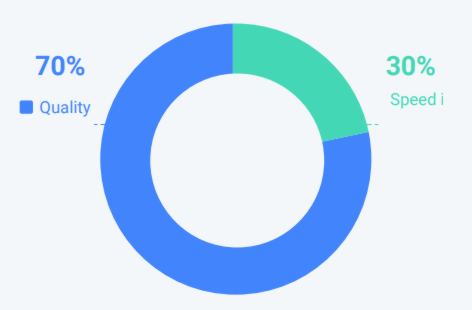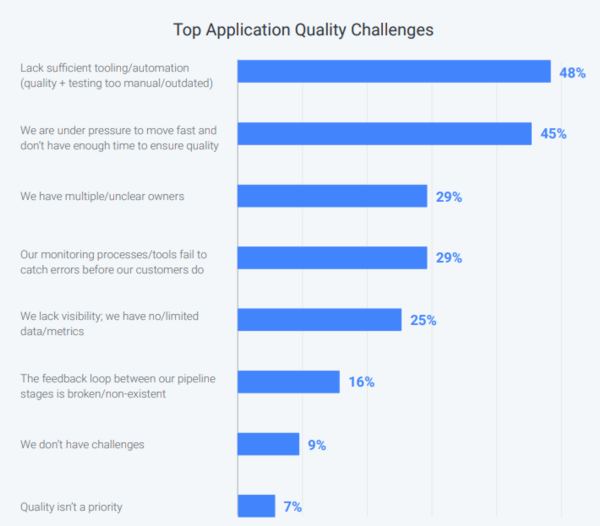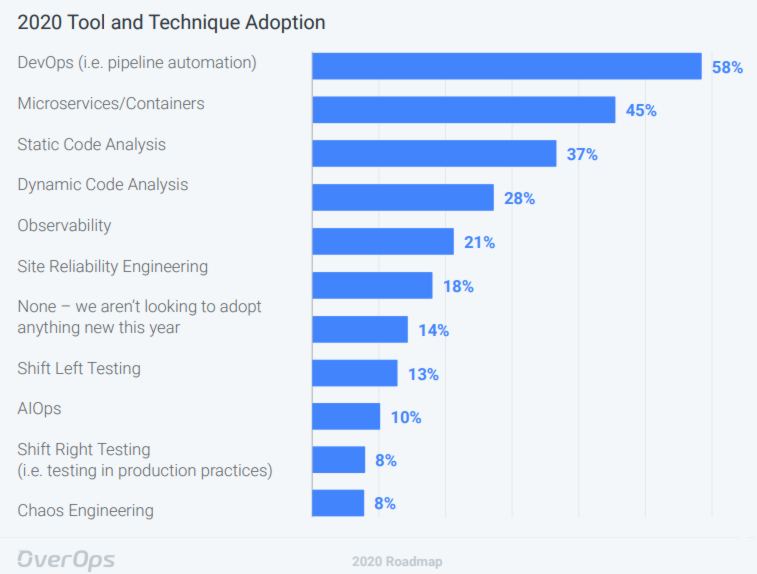| Survey Finds Quality Wins Over Speed |
| Written by Janet Swift |
| Thursday, 30 July 2020 |
|
A survey from OverOps addressed the question, "How are today’s engineering teams addressing the speed vs. stability paradox?". It discovered that while agile adoption is ongoing, automated code analysis is the next big thing. The State of Software Quality report is intended to provide a snapshot of the key challenges organizations encounter when delivering quality software at speed, as well as how they are approaching these hurdles. It uses data from a survey over 600 IT professionals ranging from developers and QA professionals to DevOps engineers and Site Reliability Engineers in large enterprise companies based in North America and Europe. According to its Executive Summary: Agile adoption is alive and well across all industries and company sizes. According to the survey, the majority of respondents – regardless of company size, DevOps adoption, industry or infrastructure – are running more frequent release schedules. More than 90% are deploying code at least once a month, and over 60% are deploying code at least once every two weeks. In fact, the report finds that 20% of organizations release code one or more times a day. Looking at what Overops describes as the "Speed vs Quality Showdown" the survey found that overwhelming majority of respondents consider (70%) say software quality paramount: Despite the emphasis on software quality, over half of survey respondents (53%) indicated that they encountered critical or customer-impacting issues in production at least one or more times a month and nearly a quarter of survey respondents said that over 40% of critical production issues are first reported by end users or customers rather than by internal tools or processes. When asked about their top application quality challenges, nearly half of participants (48%) cited manual processes and a lack of sufficient tooling as a major hurdle and, despite only 30% of respondents indicating they prioritize speed, 45% of all respondents said they were under pressure to move fast, leaving them with insufficient time to ensure quality: (click in chart to enlarge) The report draws attention to the deleterious effect of production errors on developer productivity, noting that two out of three survey respondents report spending at least a day per week troubleshooting issues in their code, with 30% spending anywhere from 2 days to a full week. Over half of all respondents indicated that improving code quality (60%) and increasing developer productivity (52%) are their company’s primary software quality goals for 2020 and this chart shows the tools and techniques that organizations are looking to adopt during the coming year: (click in chart to enlarge) Commenting on these findings, the report states: Automated code analysis is becoming the next area of interest for engineering organizations in 2020. Both static and dynamic analysis techniques are increasing in popularity, helping engineering organizations reduce their reliance on manual processes that are prone to human error. DevOps (57%) and Microservices (45%) continue to grab most of the mindshare in the engineering community. Fueled by an increase in open source cloud native technologies like Kubernetes and service mesh solutions. On the long tail of the techniques mentioned by the survey’s respondents, SRE (20%) and Observability (17%) came in as the 3rd group of practices that were mentioned. Despite industry hype, only 12% or less indicated plans to adopt shift left testing, shift right testing, chaos engineering and AIOps. More InformationThe State of Software Quality 2020 - request form Related ArticlesThe Cost And Risk Of Code Deployments JetBrains Plugin Adds DeepCode Integration JetBrains Survey Reveals Professional Developers Spend Spare Time Programming Go Developer Survey Results ReleasedStack Overflow Survey - What Professional Developers Use To be informed about new articles on I Programmer, sign up for our weekly newsletter, subscribe to the RSS feed and follow us on Twitter, Facebook or Linkedin.
Comments
or email your comment to: comments@i-programmer.info |
| Last Updated ( Thursday, 30 July 2020 ) |







